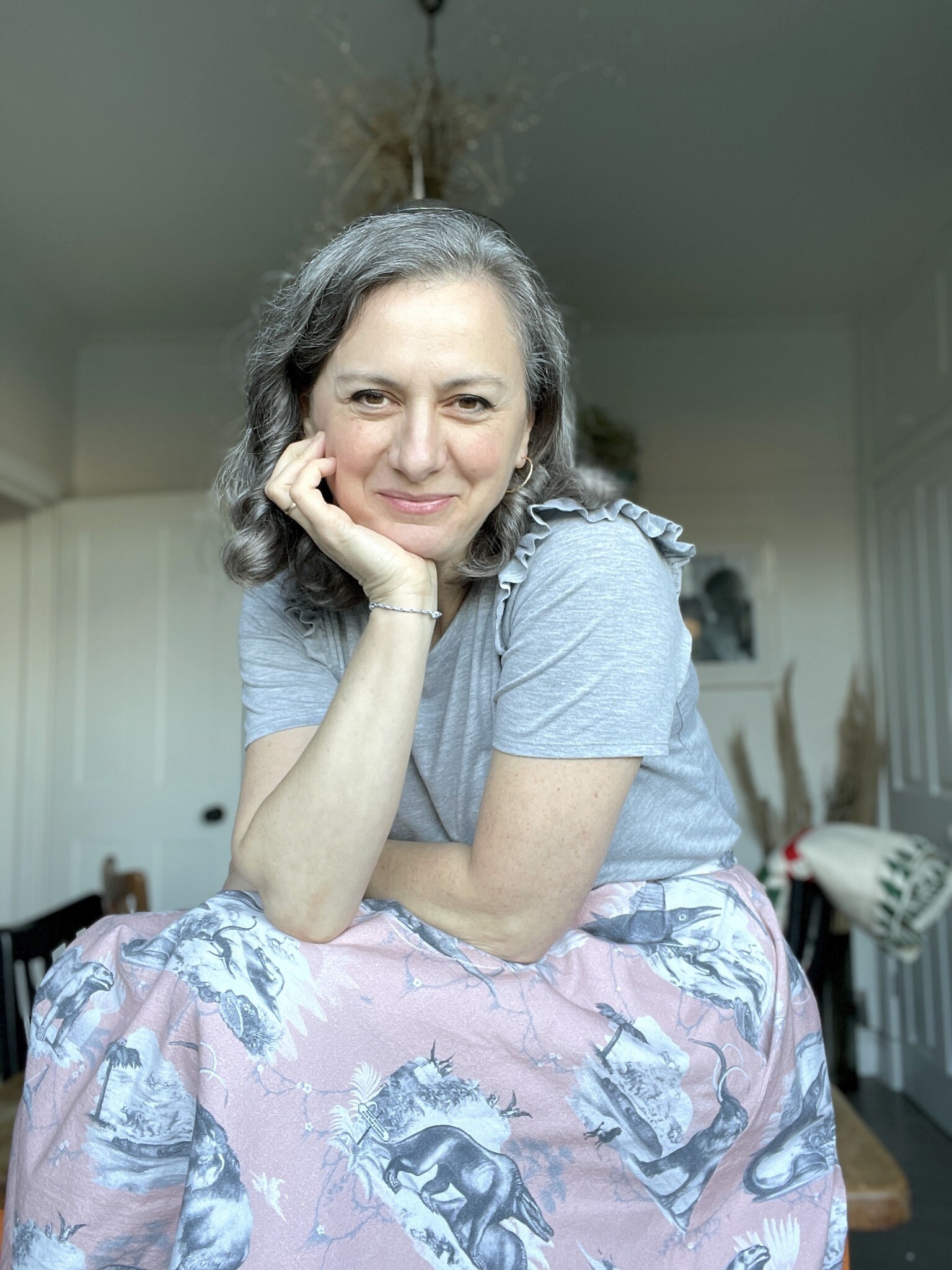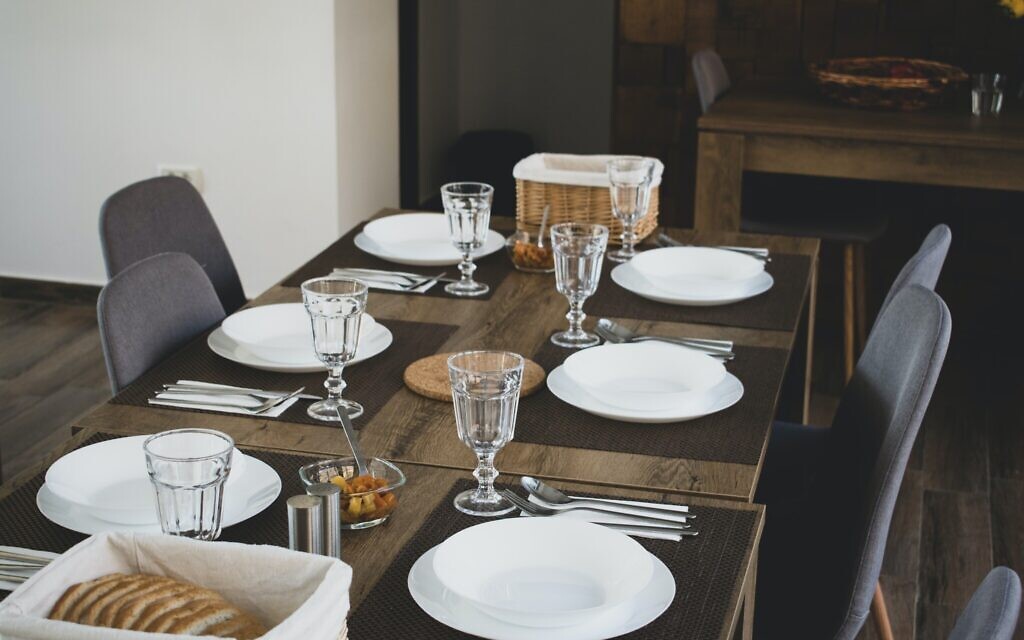Cooking conundrums for fussy family members
A family who eats together stays together, or so the saying goes. But consider the meal-makers who find it super-stressful finding dishes that can be eaten by those with allergies or fussy preference
“Something smells nice,” my 11-year-old son says cheerfully, coming into the kitchen to see what I’m making for dinner.
“Oh, I’m pleased you think so,” I reply.
“It’s a new tofu dish I’m trying out.”
Get The Jewish News Daily Edition by email and never miss our top stories Free Sign Up
My son rearranges his smile into a barely-concealed grimace and says: “Ah, yeah. I’m just going out… for dinner. I’ll be back tomorrow.”
That there’s a stand-off in our household is a running joke.
My 14-year-old daughter and I are trying to reduce our reliance on meat, something not viewed with enthusiasm by my husband or my son.

My husband – who claims not to be fussy but doesn’t like ‘wobbly’ food – is prone to barking: “But where is the protein?” whenever a veggie dish is proposed. He claims he could give up meat as long as fish is on the menu – but the kids aren’t keen.
As for me, it has been suggested that I might benefit from a gluten-, dairy- and sugar-free diet to help with some health issues.
This leaves us bored with the dishes we can all eat, given how often they feature on our menu rotation.
I know I’m not the only one with dinnertime dilemmas. When I posted on
a couple of Facebook recipe groups asking to speak to people who cook multiple meals for their families, one reader, Rachelle Lazarus, replied:
“Isn’t that everyone?”
Rachelle, 54, who is vegetarian, lives with her husband and teenage sons in Temple Fortune.

“I make different meals. I don’t even feed the dog things he doesn’t like,” she admits. “I also cook for my father-in-law. He grew up in the 1930s and, during the war, was sent to boarding school, so he doesn’t understand the concept of being a fussy eater – he eats anything he is given. However, I don’t want him to feel he needs to eat things he doesn’t like – life’s too short.”
The charity manager for a Jewish organisation says her children, now 19 and 17, used to be easy to feed when young, although this changed as they got older.
“But you just adapt the food you make,” explains Rachelle who, before
the pandemic, used to take it in turns with friends in her community to host big Shabbat lunches.
“A friend of mine said that cooking was becoming a little stressful because, whereas once she would comfortably make cholent and kugel, now she feels like she has to be Ottolenghi.
“I love cooking, but I don’t make fancy food. My style has always been to use five ingredients per recipe and keep things as simple as possible. Food should not take longer to prepare than to eat.”
Another parent having to navigate mealtime mayhem is Emma Morton-Turner, 49, an interior stylist and writer from Bromley.
Emma, who keeps kosher, suffers from acid reflux and tries to keep to a special diet that avoids certain foods, such as yellow onions. She also steers clear of spicy and greasy food.
Her husband, Tim, doesn’t like to eat certain foods together, so quiches, for example, are a no-go. Their oldest daughter, Beau, 18, is vegan and has recently had to make changes to her diet, while her sister Darcey, 15, just wants to eat meat and veg.
“Beau went vegan in lockdown, which was an adjustment,” explains Emma,
who is also an amateur baker and is used to substituting ingredients. “But then she started having stomach aches, so the doctor recommended she follow a gluten-free diet. Unfortunately, most of the prepared vegan food she had been eating isn’t gluten-free, so she had to start eating fish.”

There are other preferences Emma has to balance. “Darcey won’t eat mushrooms or peas, but does like broccoli, while for Beau it’s the opposite.
Emma remains upbeat, though, seeing it all as a challenge she can overcome.
“During lockdown, I learnt how to cook and to use flavours – it was a way for me to relax. They all really like the ramen noodle soup from Wagamama, so I learnt how to make that and it only takes 20 minutes.
It’s like a Chinese version of chicken soup. I make it vegan for Beau and add chicken for the rest of us.
“With teenage girls, it’s really important that they are eating the right food. They now understand it’s vital they have certain things in their diet.”
Stephanie (not her real name) also has to contend with allergies. Her middle child, Adam, 18, has a serious allergy to legumes – including soya, chickpeas and lentils.
Her youngest daughter, Louise, 15, is vegetarian bordering on vegan, and those banned items feature in much of the food she eats. So Stephanie has to be scrupulous in using different pans – if there’s ever any risk of cross-contamination, all the food gets binned.
“It got very annoying as sometimes I couldn’t remember what utensil I had used for whose meal, so I ended up buying different-coloured ones,” Stephanie, 50, explains. “It all literally hurts my head.”
The one thing they will all happily eat is rice, which Stephanie can make well, being half-Iranian. She has become adept at substituting ingredients so that most of the meal can overlap for each family member, for example coating some portions of Quorn in water rather than egg before dipping them in breadcrumbs.
Back in my own kitchen I have started meal planning and I’m gratefully accepting contributions from all family members. So far it’s helpful – even if just to say: “Look at the board!” when they ask: “What’s for dinner?”
NB If you are concerned by your child’s attitudes to food or level of ‘fussiness’, do seek professional help.

Thank you for helping to make Jewish News the leading source of news and opinion for the UK Jewish community. Today we're asking for your invaluable help to continue putting our community first in everything we do.
For as little as £5 a month you can help sustain the vital work we do in celebrating and standing up for Jewish life in Britain.
Jewish News holds our community together and keeps us connected. Like a synagogue, it’s where people turn to feel part of something bigger. It also proudly shows the rest of Britain the vibrancy and rich culture of modern Jewish life.
You can make a quick and easy one-off or monthly contribution of £5, £10, £20 or any other sum you’re comfortable with.
100% of your donation will help us continue celebrating our community, in all its dynamic diversity...
Engaging
Being a community platform means so much more than producing a newspaper and website. One of our proudest roles is media partnering with our invaluable charities to amplify the outstanding work they do to help us all.
Celebrating
There’s no shortage of oys in the world but Jewish News takes every opportunity to celebrate the joys too, through projects like Night of Heroes, 40 Under 40 and other compelling countdowns that make the community kvell with pride.
Pioneering
In the first collaboration between media outlets from different faiths, Jewish News worked with British Muslim TV and Church Times to produce a list of young activists leading the way on interfaith understanding.
Campaigning
Royal Mail issued a stamp honouring Holocaust hero Sir Nicholas Winton after a Jewish News campaign attracted more than 100,000 backers. Jewish Newsalso produces special editions of the paper highlighting pressing issues including mental health and Holocaust remembrance.
Easy access
In an age when news is readily accessible, Jewish News provides high-quality content free online and offline, removing any financial barriers to connecting people.
Voice of our community to wider society
The Jewish News team regularly appears on TV, radio and on the pages of the national press to comment on stories about the Jewish community. Easy access to the paper on the streets of London also means Jewish News provides an invaluable window into the community for the country at large.
We hope you agree all this is worth preserving.
-
By Brigit Grant
-
By Laurent Vaughan - Senior Associate (Bishop & Sewell Solicitors)
-
By Laurent Vaughan - Senior Associate (Bishop & Sewell Solicitors)
-
By Laurent Vaughan - Senior Associate (Bishop & Sewell Solicitors)
-
By Laurent Vaughan - Senior Associate (Bishop & Sewell Solicitors)























